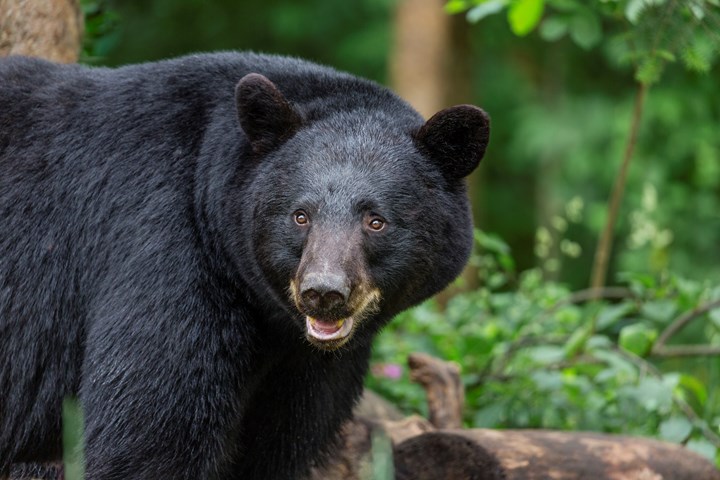
by Brian McCombie - Monday, August 18, 2025

Commissioners of the Florida Fish and Wildlife Conservation Commission (FWC) recently voted 5-0 to approve rules that established a black bear hunt in the Sunshine State for 2025 and beyond. Florida has not seen a bear hunt since 2015.
FWC said in a press release, “The new rules establish Bear Hunting Zones within four of the seven existing Bear Management Units. One hundred eighty-seven permits will be issued in total across the East Panhandle, North, Central and South BMUs, and each permit will allow the harvest of one bear within the assigned BHZ. Permits will be distributed through a random drawing. Those 18 years and older can apply as many times as they want for $5 per application.”
"I am proud that Florida is joining the majority of states that manage black bears with regulated hunting," said Rodney Barreto, chairman of the FWC. "The components of the hunt are conservative and prioritize conservation, with a limited number of permits only being issued in the areas of the state with the largest bear populations."
Florida is home to some 4,000 black bears and the population is growing fast. While there is enough suitable bear habitat to support current population levels, FWC biologists determined that, if bear numbers in the four largest subpopulations continue to grow at current rates, the bears will soon run out of habitat.
The Sunshine State has already seen a surge in human-bear conflicts in recent years, as well as the state’s first fatal bear attack in May 2025. As NRA-HLF reported, “The … attack occurred in the FWC’s South Bear Management Unit, home to the state’s third-largest bear population that was estimated at 1,044 animals in 2015. Undoubtedly, that number is larger today.”
Meanwhile, FWC receives 6,300 bear-related calls every year, on average. Over the last half century, FWC has also documented 42 times when wild black bears have made physical contact with people; three of the people sustained injuries serious enough to warrant medical attention.
Such conflicts will only increase with more bears, and FWC considers the hunt a wildlife management tool to keep bear numbers in line with available habitat and, they hope, stem increases in potential conflicts.
This year’s hunt will run for 23 days, from Dec. 6-28, and future hunts will likely be scheduled between Oct. 1 and Dec. 31, depending on the first hunt’s results.
Anti-hunters were quick to condemn the FWC’s actions. Calling the planned hunt “this atrocity,” Raquel Levy, an attorney for Bear Warriors United, promised a lawsuit to challenge the legality of what she termed a “trophy bear hunt.”
In fact, the group actually filed a lawsuit against FWC before the recent hunt vote, alleging that FWC improperly removed black bears from the state’s Threatened Species list in 2012.
Florida’s black bears were legally designated as a threatened species from 1974 to 2012. When first placed on the threatened list, only a couple of hundred bears were found across the state. By the time of the 2015 bear hunt, FWC estimated more than 3,100 bears statewide. Even with the 304 animals taken in 2015, bear numbers continued to increase to the aforementioned 4,000 or so today.
As we noted here at NRAHLF various anti-hunters in Florida put forward the idea of antis applying for the available bear tags and then not using the tags if awarded.
Once the hunt was approved, some comments of the Facebook page of Bear Warriors United even suggested disrupting the hunt: “Are there ways to disrupt the hunts?” wrote one person. “Air horns, fireworks, loud rock music?”
Another “compassionate” Facebook commentator reacted to the hunt being approved with this: “I truly hate hunters.”
Hunt opponents also labeled the bear hunt as unscientific and politically motivated.
Actually, FWC relied on huge amounts of scientifically generated data before approving the hunt. And, also contrary to what the anti’s claim, FWC took a very careful approach to the 2025 hunt harvest.
“The FWC has set the number of permits available to equal the maximum number of female bears that could be removed without reducing the population in each Bear Management Unit. This is a more conservative approach because it is highly unlikely that the bears harvested each year would all be female and that hunters would have a 100% success rate.”
As the FWC Florida Black Bear Management Plan noted, “Balancing wildlife numbers with suitable habitat keeps populations healthy. Hunting is an important and effective tool for managing wildlife populations around the world … .”
Photo by Lon Lauber; lonlauber.com
E-mail your comments/questions about this site to:
[email protected]
Proudly supported by The NRA Foundation and Friends of NRA fundraising.
